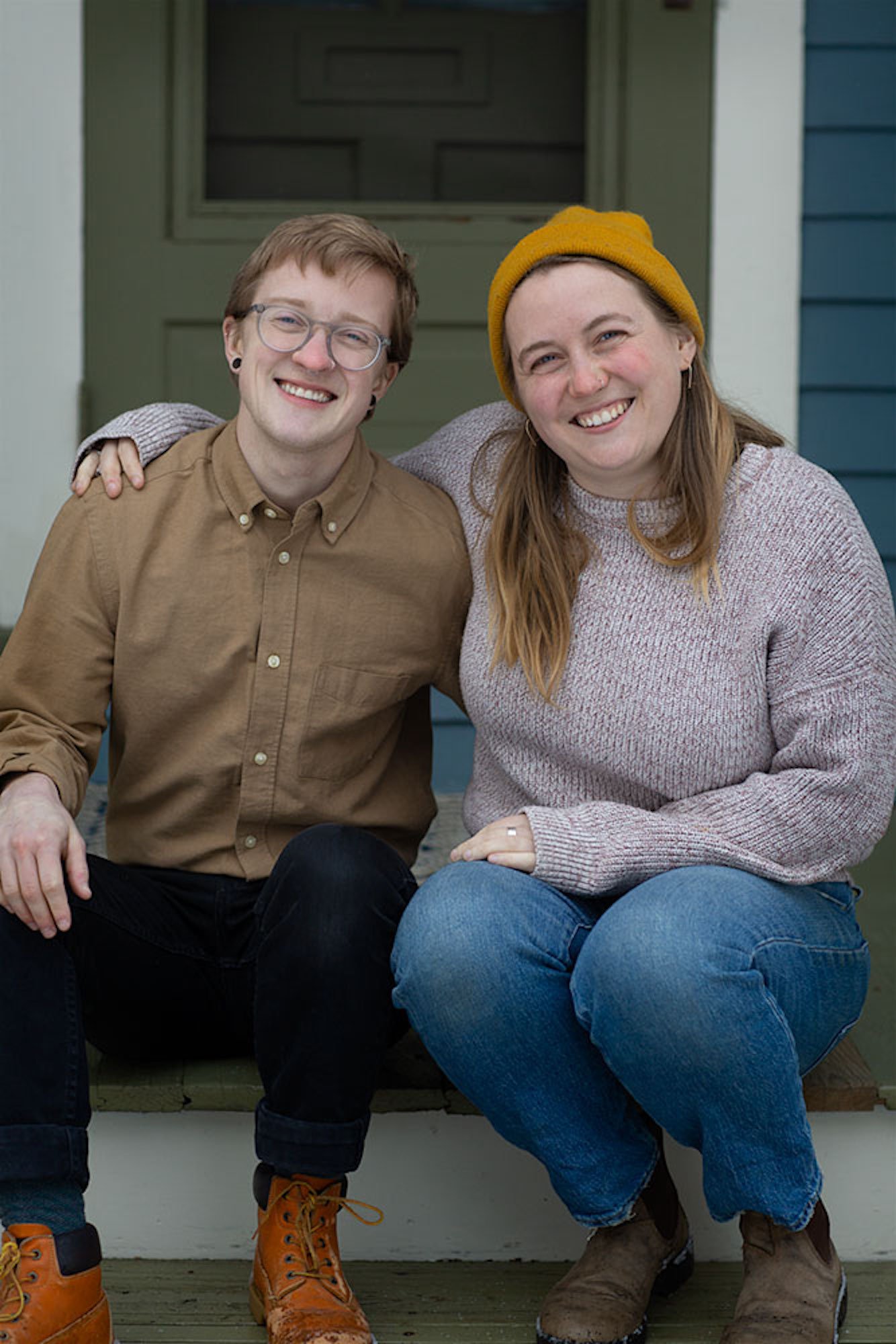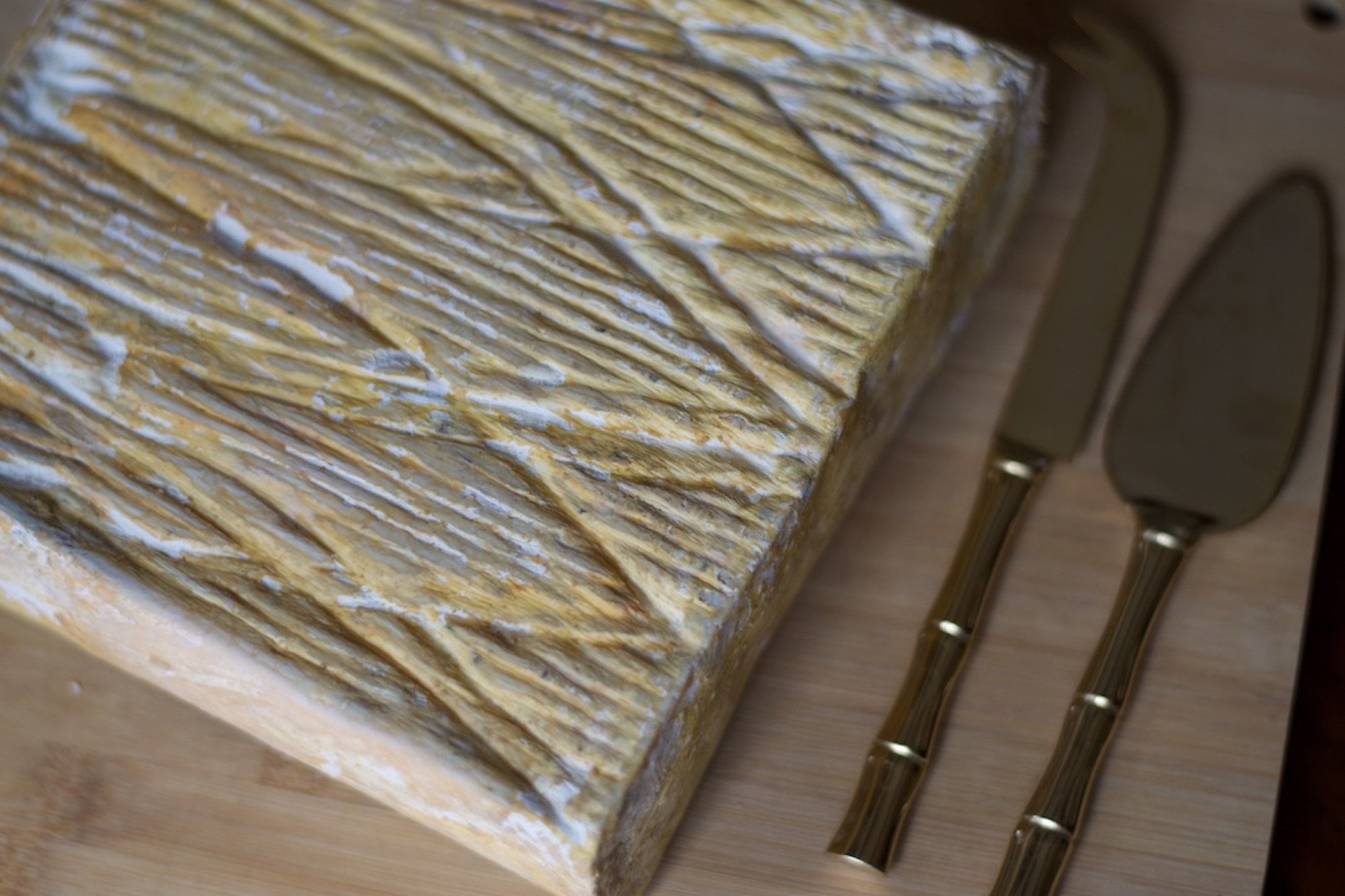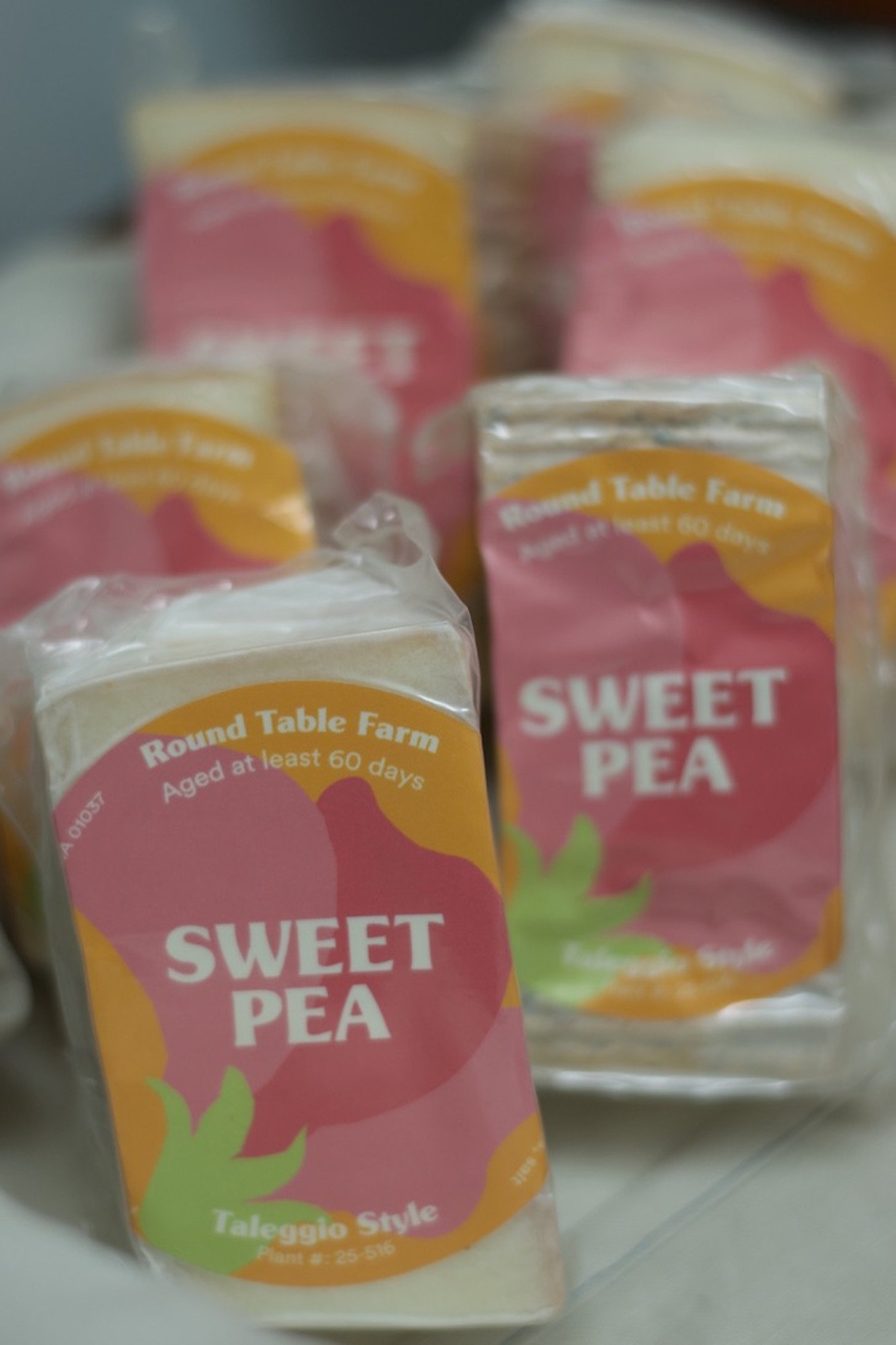How Massachusetts' Cheesemakers are Rising to the Challenge at Round Table Farm
Round Table Farm, in Hardwick, Massachusetts, is a creamery and flower farm owned by young queer couple Marlo Stein and Archer Meier. Their path to farmstead ownership has been faster than either of them expected. Both under the age of 30, with a smattering of various agricultural experiences between them, “we always knew that (cheesemaking) was something that we were really interested in doing in the long term,” says Stein, “but we thought it would be 15 years from now, because of the vast amount of infrastructure you need in order to start a creamery or a dairy business of any kind.”
Having met as undergrads at Smith College, “it never felt like us owning and running a farm together was on the horizon at that point,” says Stein, though eventually farming and cheese making presented themselves as an ideal intersection of both Stein’s and Meier’s common, as well as varied, goals and interests.
Starting with farming
“I've always really loved working with animals,” says Meier, along with which, a post-college work experience at a small dairy farm in Wisconsin ignited his interest in cheesemaking. “I really value the marriage of cheesemaking and farming, because obviously, those things are so closely intertwined, but they're often separated or happen in very different places. And so it’s exciting to me to get to bring those things together, and to get to see the process from the very start.”
From Stein’s perspective, “I saw that farming was a career that could join so many of my different passions between environmental justice, social justice, my desire to be outdoors, and doing work that felt constructive and very visible,” she says. The name Round Table, in fact, comes from this important sense of community and inclusivity: “A big reason that we decided to make this move was in COVID, in climate crisis, and in a lot of political division, we just wanted a space that we could gather with people that we love safely, and where we could be generous with our resources, our space, and our food,” says Stein. “And Round Table Farm just really exemplifies that feeling of gathering and that idea of asking everyone in our community to be at the table.”
The Acquisition of Round Table Farm
In a model that seems poised to become more common in coming generations, a farming couple on the verge of retirement — in this case Ray and Pam Robinson of Robinson Farm — who had no children interested in taking over their family farm, took anticipatory steps to outfit and scale their operation so that it could be appealing, functional, realistic, and most importantly, affordable for young farmers looking to enter the business. Needless to say, farm acquisition has accelerated Meier and Stein’s life plans.
“The Robinsons knew that in order for young farmers to be able to come in and have a viable business, that the large commercial dairy they had been running wasn't the answer,” says Stein. “They knew that they were going to have a much harder time passing this to new owners at that scale, but they really wanted someone to come in and keep this as a farm. And that was a big reason they decided to invest in the creamery,” she says, and that (Ray) Robinson decided to downsize his herd along with purchasing cheesemaking equipment in anticipation of being able to retire at a comfortable age, knowing his 4th generation family farm would be in good hands.
And so even though the Robinsons would only make their own cheese for a handful of years before planning to retire, they correctly anticipated that the cheesemaking equipment and know-how would help them find the right people to take on their farm and keep it going as such. A decision to re-parcel the land into smaller units also made farm ownership for Stein and Meier a realistic possibility ahead of schedule.
Cheesemaking Mentorship
Once Stein and Meier took over the operation, christening it Round Table Farm, they had the benefit of mentorship from the Robinsons, who were still living just up the road while they sought a retirement property in Vermont.
“Ray Robinson was the one who taught us how to use all of the equipment,” says Meier. “We walked in, and we're like, ‘this is gonna be awesome…and I don't know how it works.’ I had made cheese before, but Marlo had never made cheese before coming here. And I had never made cheese in a 200 gallon vat, so that was all very new to me. So he was really influential in helping us get started with all of that.”
Despite Meier being the one between them with previous cheesemaking experience, they made it a point to completely collaborate on their cheesemaking operation. “We've been trying to really do it as much as we can together so that we can develop consistency,” says Stein. “We've learned so much, having started from so little because we thought that this was going to be much further on in our lives.”
Round Table Cheeses
Within months of setting up shop, Stein and Meier were selling their own cheeses, along with some aged stock leftover from the Robinsons’ cheesemaking operation, primarily at local farmer’s markets, which primarily featured a Taleggio-style cheese called Sweet Pea, which was made from a recipe and process taught to them by the Robinsons.
The cheeses they have added to the lineup include a Jack-style cheese called Sunny Jack, and a Manchego-inspired cheese called Cosmo. (Since part of their business is also a flower farm, they’ve taken to naming their cheeses after flowers.)
“I think one of the biggest things that we've learned and that has piqued our curiosity for continued learning is the affinage and the aging,” says Stein, with a lot of trial and error to get to know the ambient flora that already existed in the Robinsons’ various cheese caves. “We kind of took on some ambitious types of cheese; one of our cheeses is kind of between a Taleggio and a brie so it's very tricky to navigate,” she says, “but it's been awesome because it's taught us so many different techniques. We've had so many successes and failures with it that have really helped guide us and brought up a lot of questions and experimentation as we go.”
The Future of Round Table
As Stein and Meier anticipate the next several years of their exciting, burgeoning cheese and flower business, they expect to expand their herd and their cheese inventory, using milk from their own animals as well as bought milk from the local community.
“Hauling milk will probably always be part of our business plan,” says Meier, “because it gives us more flexibility as young farmers who want to also have lives, and also allows us to support local dairies, which in Massachusetts can be a really hard thing to be, especially with all of the large milk coops pulling out of the area.”
“Kind of the biggest dream situation right now that we're up against is we would love to get to do some more fresh cheeses,” says Meier. “We currently don't have a pasteurizer, so right now we're making exclusively aged cheese. We love raw milk, and that feels like it will continue to be the main products that we make. But we would love to do a cream cheese, and other really fun, fresh, soft cheeses that would also have a quicker turnaround time. Right now we're making cheese thinking two months ahead.”




